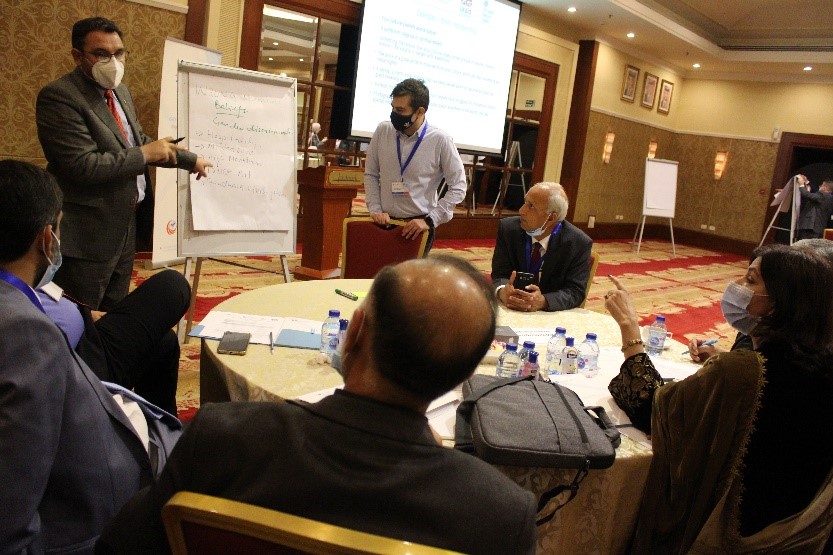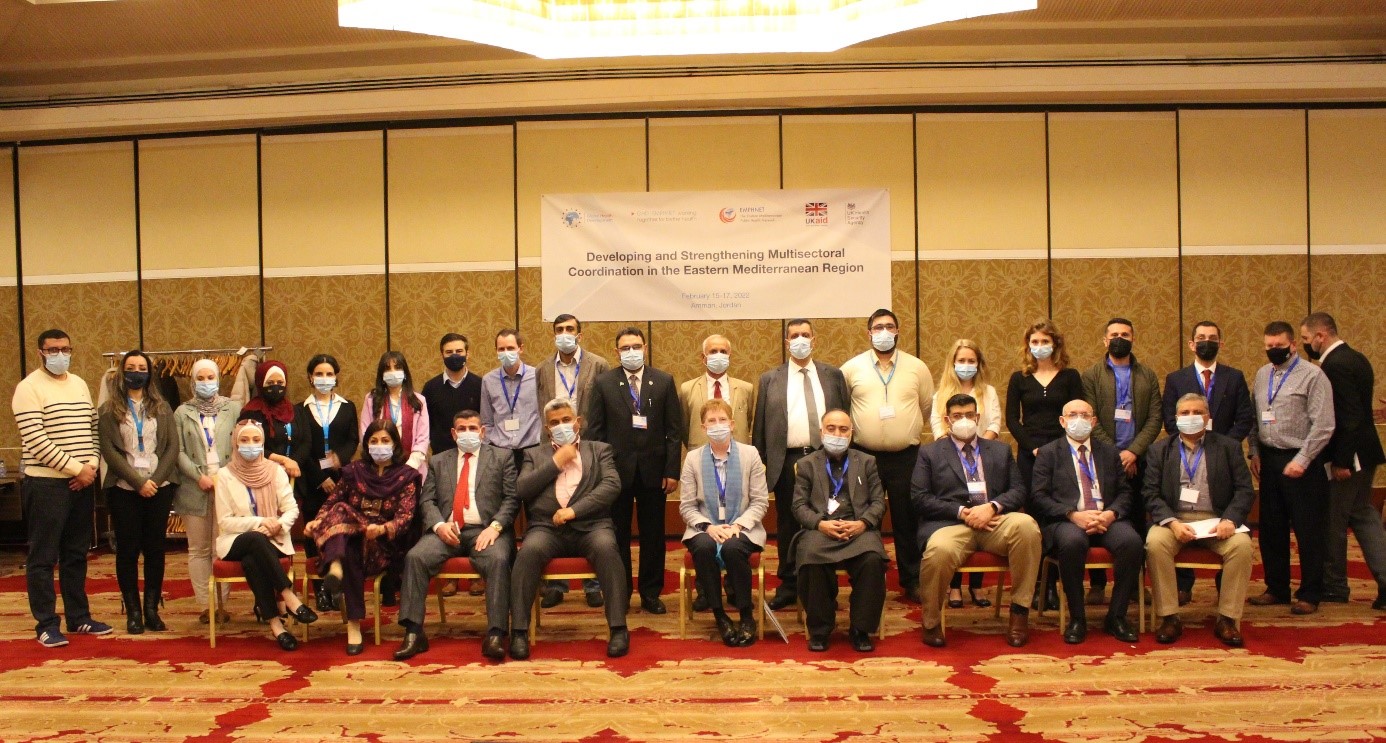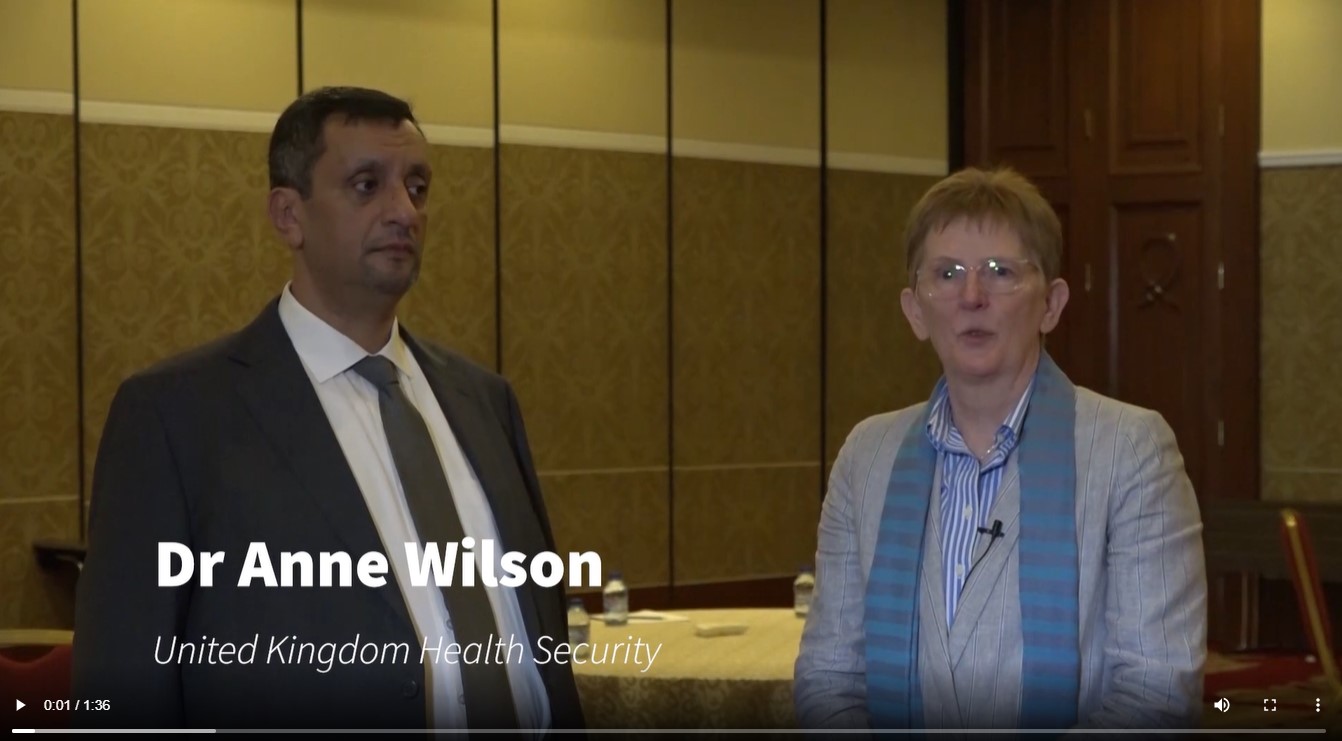
The UKHSA’s IHR Strengthening Project and GHD|EMPHNET have partnered to support countries in the Eastern Mediterranean Region (EMR) to develop and strengthen multisector coordination. An initial 3-day workshop was held in February 2022.
Multisector coordination (MSC) – or the “collaboration between stakeholders from multiple and diverse sectors and disciplines working towards the shared goal of enhanced health emergency preparedness” – is a thread running through the International Health Regulations (2005). It’s importance has been highlighted by experiences in responding to the COVID-19 pandemic. While there are numerous tools and guidance documents describing what MSC is, it can be less clear how to implement them in complex, and potentially under-resourced, settings.
 In this context, GHD|EMPHNET and UKHSA partnered to support partner countries in how they may develop and strengthen MSC. Initially, a MSC situational analysis tool was developed for partners in Iraq and Pakistan to complete. The tool, informed by implementation science theories, aimed to identify existing strengths and barriers and understand the context in national MSC efforts, so these could be further discussed in a regional workshop.
In this context, GHD|EMPHNET and UKHSA partnered to support partner countries in how they may develop and strengthen MSC. Initially, a MSC situational analysis tool was developed for partners in Iraq and Pakistan to complete. The tool, informed by implementation science theories, aimed to identify existing strengths and barriers and understand the context in national MSC efforts, so these could be further discussed in a regional workshop.
The “Developing and Strengthening Multisectoral Coordination in the Eastern Mediterranean Region” face-to-face workshop, was held in Amman, Jordan on 15-17 February 2022. Senior officials from Iraq and Pakistan public health institutes, ministries, provincial governments and colleagues from sectors outside of health gathered with the following objectives:
- to achieve a greater understanding of the multisector structures in EMR
- to analyze experiences of joint work and / or coordination between Ministries, as well as with other public and private actors
- to support and facilitate cross regional sharing of learning and experience
- to identify lessons and policy recommendations to improve multisectoral coordination
- to identify the potential content of an ongoing support package provided to countries in support of achieving their workplan aims and objectives
The workshop content included an overview of the MSC project; country presentations of their own MSC arrangements, successes and challenges; and a broad overview of the key themes and issues emerging from the situational analysis . Within the workshop, country groups undertook a SWOT analysis (strengths, weaknesses, opportunities, threats) of key components of their MSC systems. The SWOT and situational analysis insights were synthesised by GHD|EMPHNET and UKHSA and developed into a menu of potential focal areas for discussion.
Through a prioritisation process, participants co-designed the agenda for days 2 and 3 based on this menu by identifying the main areas to be examined in more detail based on their current country gaps and capacities. Topics selected included:
- understanding resistance to change
- influencing without authority
- identifying stakeholders, their influence and power
- sustaining / embedding progress from disruptive events like COVID-19
- utiliing monitoring and evaluation to advocate for multi-sectorial coordination

Outcomes and Next Steps
The workshop was the first step in a series of joint activities planned to develop and strengthen MSC in the EMR through tailored support to countries. GHD|EMPHNET and UKHSA are working with country representatives to develop the details of this support, based on workshop discussions and identify opportunities for regional cross-learning and engagement. A follow-up virtual workshop is planned for April 2022, with ongoing support provided to countries until late summer 2022. A second face-to-face workshop, to reflect on progress made and the support provided is planned later in 2022.
Article by Emma Crawford and Chris Cartwright
Watch the interview with Dr Anne Wilson (UKHSA) and Dr Magdid Gunied (GHD EMPHNET):
